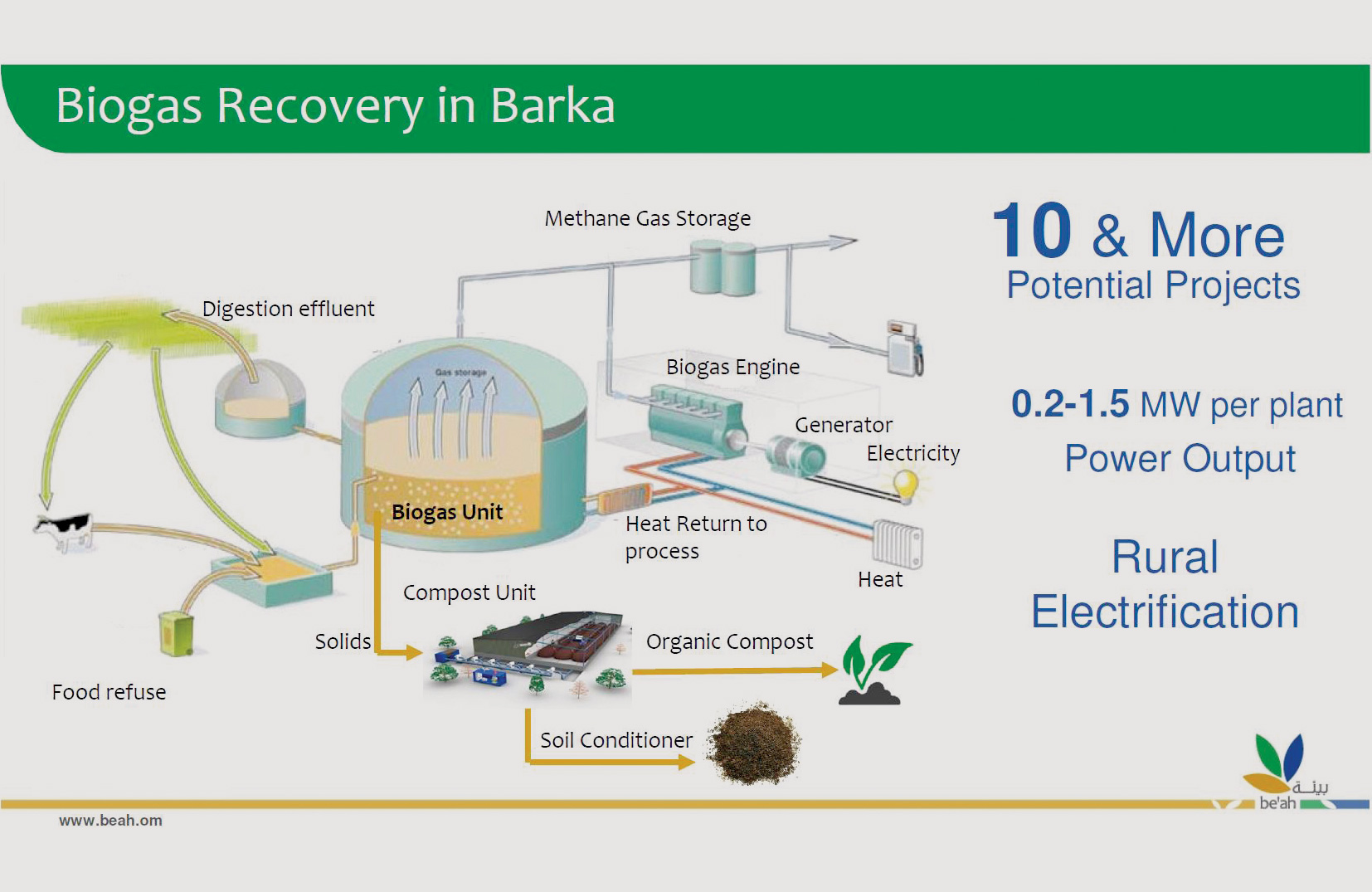

MUSCAT, SEPT 15 - Oman Environmental Services Holding Company (Be’ah) — the Sultanate’s solid waste management authority — is setting into motion an ambitious plan designed to harness the energy potential of bio-waste being generated daily around the Sultanate. As a first step, the sector regulator is preparing to commission a feasibility study for the development of the Sultanate’s first-ever commercial-scale biogas plant. Interested consultancy firms have until September 28, 2018 to submit their bids for the study.
Be’ah sees significant opportunity for investment in biogas and related biofuel and composting projects that capitalise on the prodigious amounts of bio-waste being generated regularly from households, commercial establishments, abattoirs and livestock farms operating around the country. When blended with waste biomass from farms, the recycling potential of bio-waste is seen as hugely promising.
According to a Be’ah expert, the huge quantities of bio-waste being generated around the Sultanate can feed as many as 10 biogas plants suitable for producing either electricity for local communities or thermal heat for industry. Alternatively, the bio-waste can also be processed to produce biofuel such as biodiesel or simply converted into compost for agriculture, says Suad Said al Hosni of Be’ah’s Strategic Development Department.
The expert told a conference held in the city last December that Be’ah is studying initiatives to unlock the economic and commercial potential behind the recycling of organic and bio-waste currently ending up in landfills across the Sultanate.
Bio-waste management and bio-energy production are key components of be’ah ‘diversion’ strategy, which seeks to achieve the diversion of around 60 per cent of municipal solid waste away from landfills into recycling and recovery initiatives by the year 2030, rising to 80 per cent by 2040, according to the official.
Contributing to bio-waste generation in the Sultanate is a mix of green waste, organic waste collected from households, slaughterhouse waste, poultry and livestock waste, household sludge, food waste from restaurants, processing plants and commercial establishments, and fruit and vegetable waste from hypermarkets and the central market.
According to the official, Be’ah envisions the potential for at least seven medium to large-scale biogas plants to be established in Muscat, South Al Batinah and Dhofar governorates, where bio-waste generation is the highest. Capacities are expected to range from 1 to 2.5 megawatts (MW).
In collaboration with Oman Power and Water Procurement Company (OPWP) — the sole procurer of new electricity generation and water desalination capacity — Be’ah is weighing the potential to develop a ‘Waste-to-Energy’ project that will utilise municipal waste for power generation. The proposed 50MW plant is planned to be developed at Barka, where one of Oman’s largest landfills for municipal waste is located.
Furthermore, to demonstrate the potential for biogas generation from bio-waste, Be’ah is also collaborating with the German University in Oman (GUtech) in setting up a pilot plant at its campus in Halban. The pilot will process between 10 to 50 tonnes per day of organic waste received from the Al Mawaleh Central Market, augmented by supplies from other sources. Electricity output is envisaged at 0.6 MW, which will be used to power some of GUtech’s facilities.
Conrad Prabhu
Oman Observer is now on the WhatsApp channel. Click here



